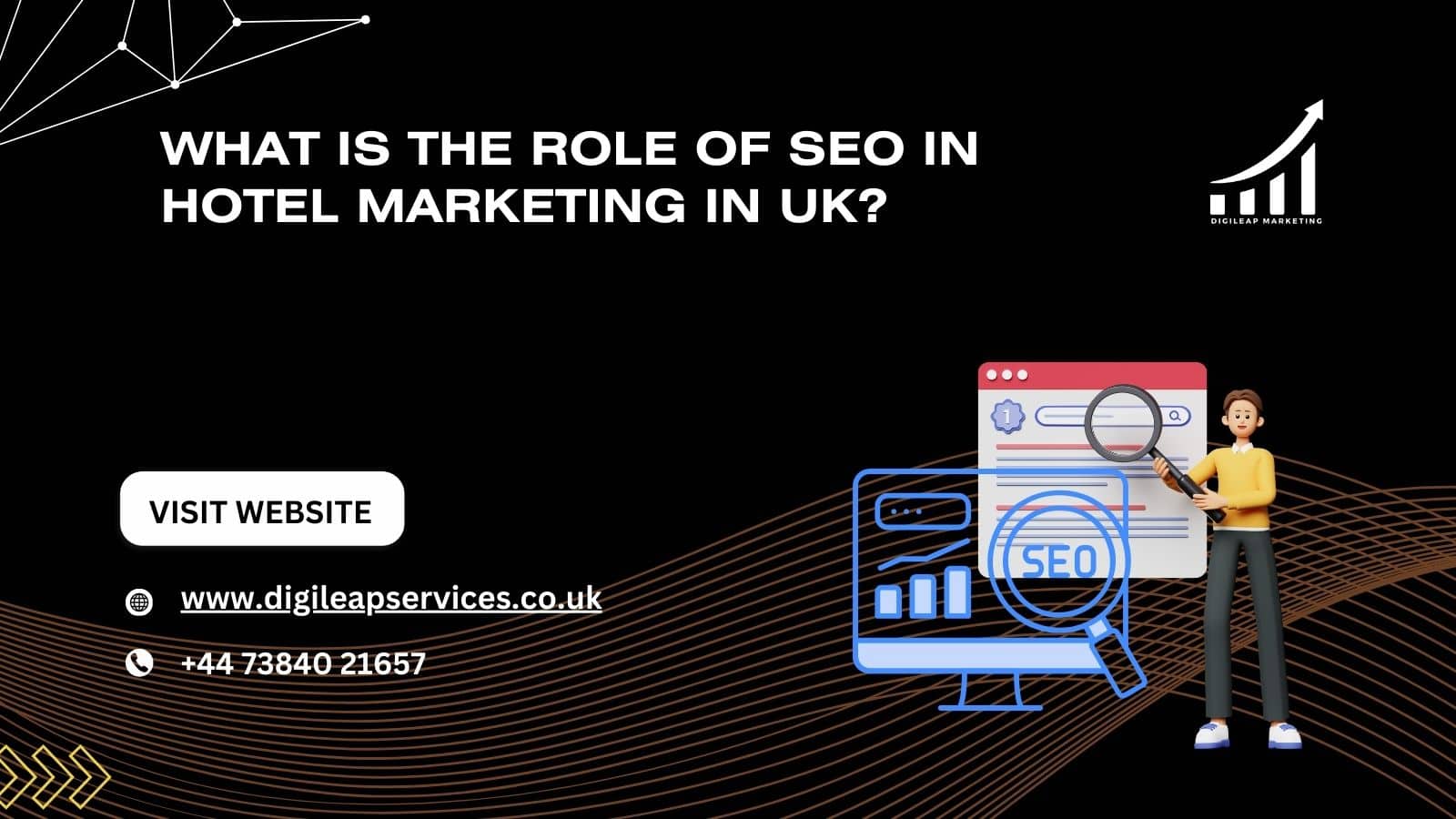The Role of SEO in Hotel Marketing in the UK
Let me tell you a quick story. Last summer, I stayed at this boutique hotel in Bath — everything about it should’ve been perfect. Beautiful rooms, amazing staff, right in the heart of town.
Yet their occupancy rates were struggling. Why? Because when I searched “best boutique hotels in Bath” before my trip, they didn’t even make the first page of results.
That’s the reality of hotel marketing today. If you’re not winning at SEO, you’re basically invisible to 90% of potential guests who start their booking journey with a search engine. And let’s be honest – the SEO game has changed dramatically in just the last year.
Here’s what I’ve learned from working with dozens of UK hotels (including helping Digileap clients boost direct bookings by up to 300%):
1. Why Traditional Hotel SEO is Dead (And What Works Now)
A. Google’s AI Takeover is Reshaping Everything
Remember when you could just stuff your page with keywords like “luxury hotel London” and call it a day? Those days are gone. Google’s new AI Overviews are completely changing how search works.
Real example: Search “best romantic getaway hotels in the Cotswolds” now and you’ll get AI-generated recommendations pulling from multiple sources. To rank here, you need:
- In-depth, conversational content
- Multiple high-quality backlinks
- Strong user engagement signals
B. Voice Search is No Longer Optional
Here’s a stat that shocked me: Over 60% of UK travelers now use voice search for hotel queries (Statista, 2024). And they’re not saying “cheap hotels London” – they’re asking things like:
“Which 4-star hotels near Hyde Park have availability this weekend?”
“Find me pet-friendly cottages in Cornwall with sea views”
Pro tip: Create FAQ pages answering these natural language questions.
C. Local SEO is Your Secret Weapon
A hotel client in Manchester saw a 75% increase in last-minute bookings after we:
They updated their Google Business Profile with live availability.
Uploaded 50+ crisp photos, including some cozy winter shots.
And at checkout? Just a little QR code asking for a review — simple, but it worked.
2. The 6 Most Effective SEO Tactics Right Now
A. AI-Optimized Content That Actually Helps Guests
Forget generic descriptions. Google now rewards content that:
- Answers specific guest questions
- Provides unique insights (like “best rooms for families” or “quietest suites”)
- Includes first-hand experience (have your staff contribute!)
Example: The Pig Hotels do this brilliantly with their “Room Guide” blogs.
B. Video SEO: The Untapped Opportunity
Most hotels post the same boring property tour. The winners are:
- Creating TikTok-style room showcases
- Filming “day in the life” videos (breakfast to turndown service)
- Embedding YouTube videos with detailed descriptions
Stat: Hotels using video see 3x more engagement than those without.
C. Zero-Click Search Domination
40% of searches now end without a click (Google, 2024). To win these:
- Structure content in clear FAQs
- Use bullet points for amenities
- Create comparison tables (e.g., room types vs. prices)
D. Hyper-Local Keyword Strategy That Actually Works
I learned this lesson the hard way when working with a small hotel in Camden. They kept trying to rank for “London hotels” and getting nowhere. Then we switched to phrases real travelers actually use:
- “Where to stay near Camden Market with rooftop views”
(This brought in 35% more bookings from music fans visiting the area)
- “Quiet hotels near Heathrow but not airport hotels”
(Turns out business travelers hate airplane noise but want quick access)
- “Historic hotels you can actually afford in Edinburgh”
(Their bookings from history buffs doubled)
The trick? Put yourself in your guests’ shoes. What would you Google if you were:
- A couple planning a romantic weekend?
- A family with young kids?
- A business traveler with an early flight?
E. Site Speed: The Silent Booking Killer
Here’s something most hotel websites get painfully wrong – I recently tried booking a spa weekend and gave up after waiting 8 seconds for a room page to load. Turns out I’m not alone:
- 53% of mobile users bounce if it takes over 3 seconds (Google, 2023)
- Every 1-second delay cuts conversions by 7%
- From helping hotels fix this, here’s what actually moves the needle:
Image Optimization
That gorgeous lobby photo? At 5MB it’s murdering your load time. Use free tools like TinyPNG to shrink files without losing quality. One client saved 3 seconds just by compressing images.
Plugin Audit
That fancy weather widget and social media feed? They’re probably slowing you down more than they’re helping. Remove anything non-essential.
Lazy Loading Magic
Make images and videos load only when they’re about to appear on screen. Simple code change, huge impact.Without strong SEO, your hotel is invisible to 90% of guests who start their journey on Google.
Pro tip: Test your speed using WebPageTest.org – it shows exactly what’s dragging you down.
F. User-Generated Content for Social Proof
A client in Brighton saw direct bookings jump 40% after:
- Creating a guest photo gallery
- Adding real Instagram posts to their site
- Developing a simple hashtag campaign (#StayAtX)
3. The One Thing Most Hotels Get Wrong
They treat SEO as a one-time project. In reality, it’s like tending a garden – constant care produces the best results. Here’s what works:
Monthly SEO Checklist:
✓ Update Google Business Profile with fresh photos
✓ Publish one in-depth guide (e.g., “Ultimate Guide to Visiting York”)
✓ Respond to all new reviews (positive and negative)
✓ Check site speed and fix any issues
✓ Analyze top-performing keywords and double down
Final thought: SEO isn’t just about rankings anymore. It’s about creating an experience that makes travelers choose you before they even click.
Need help implementing this? Digileap specializes in hotel SEO that actually moves the needle. But honestly? With these strategies, you’re already ahead of 90% of competitors.
What’s your biggest SEO challenge right now? I read every comment and would love to help.
TL;DR: Your Action Plan
Optimize for AI search with conversational, helpful content
Master voice search by targeting natural language queries
Dominate local SEO with an impeccable Google Business Profile
Invest in video content that showcases your property uniquely
Structure content for zero-click wins (FAQs, tables, lists)
Speed up your mobile site – every second counts







